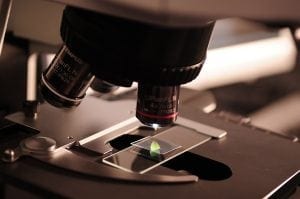Kalytera Therapeutics, Inc. has announced that a meeting with the Centre for Drug Evaluation and Research of the US FDA is planned for Tuesday, 31st July this year. The purpose of the meeting is to discuss a planned study which will investigate the use of cannabidiol (CBD) as a treatment for acute graft versus host disease. The original article can be read here, at Globe Newswire.
Acute Graft Versus Host Disease (GVHD)
GVHD is a possible complication of bone marrow and stem cell transplants. ‘Graft’ refers to the donated bone marrow or stem cells, and the ‘host’ is the patient receiving them. In graft versus host disease, the graft sees the host as foreign and attacks them. At a cellular level, this happens when white blood cells called T cells (which are involved in the immune response) in the graft attack body cells.
This can cause mild or severe effects. According to Cancer Research UK, in acute GVHD, the symptoms typically (but not always) begin within 100 days of the transplant, and most often around 2 or 3 weeks when transplanted bone marrow cells begin to produce blood cells. Often, it begins with a rash, but people can experience other symptoms including jaundice, sickness, diarrhea, and appetite loss.
About Kelytera’s Planned Meeting
A spokesperson for Kelytera says that the company has submitted questions to the FDA that are likely to be answered during the meeting and following this, and other discussions at the meeting, Kelytera expects to be able to respond to requests from the Centre for Drug Evaluation and Research. The next step will be to submit an investigational new drug application. If this is accepted, a planned study of the experimental drug in acute GVHD will be able to take place.
Research into CBD for Acute GVHD
A Phase 2 study of CBD for the treatment of acute GVHD was carried out, and the results were encouraging. According to the original article at Globe Newswire, out of ten patients, nine responded to treatment, and seven achieved complete remissions. Two reached near-complete responses. Following a median period of 13 months, six patients are still alive. In comparison, 26 out of the 29 patient control group died as a result of GVHD and/or its complications.
A pivotal Phase 2-3 study is now planned to take place later this year. It is expected to involve around 135 patients with acute GVHD.






